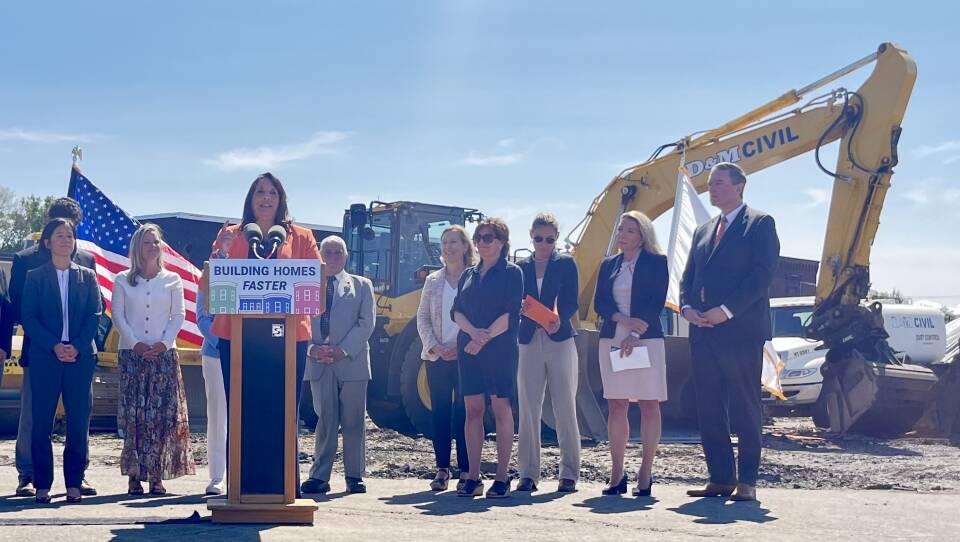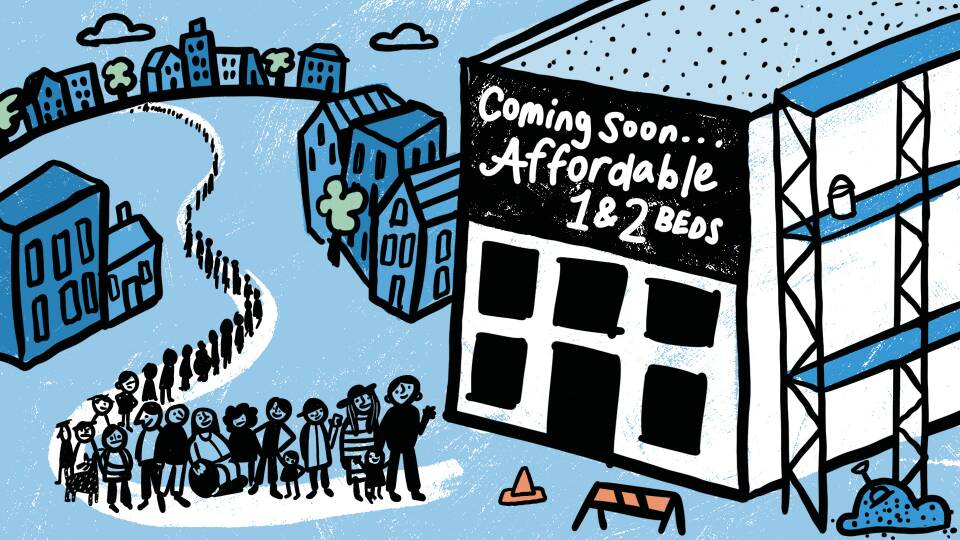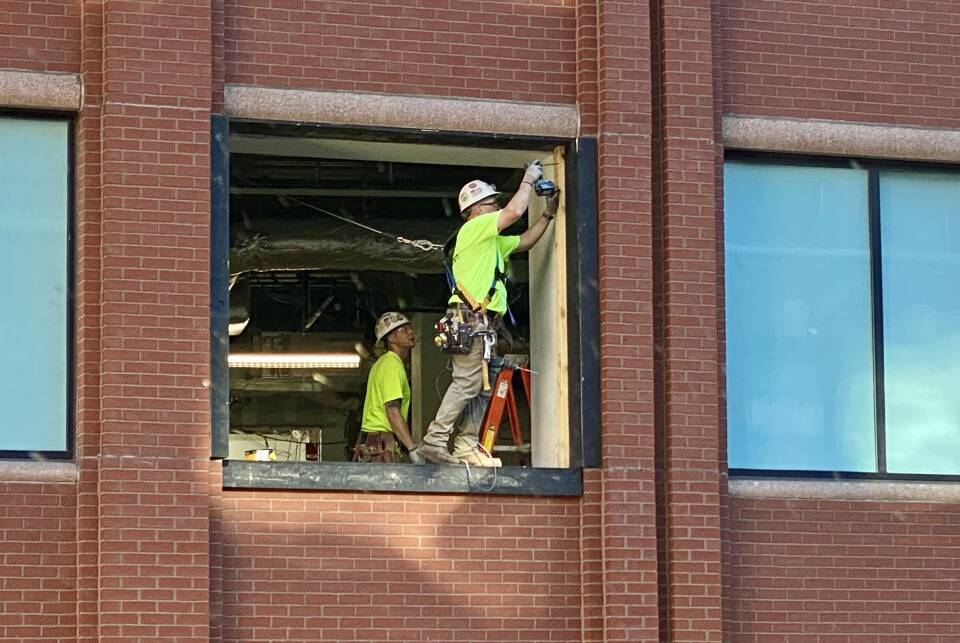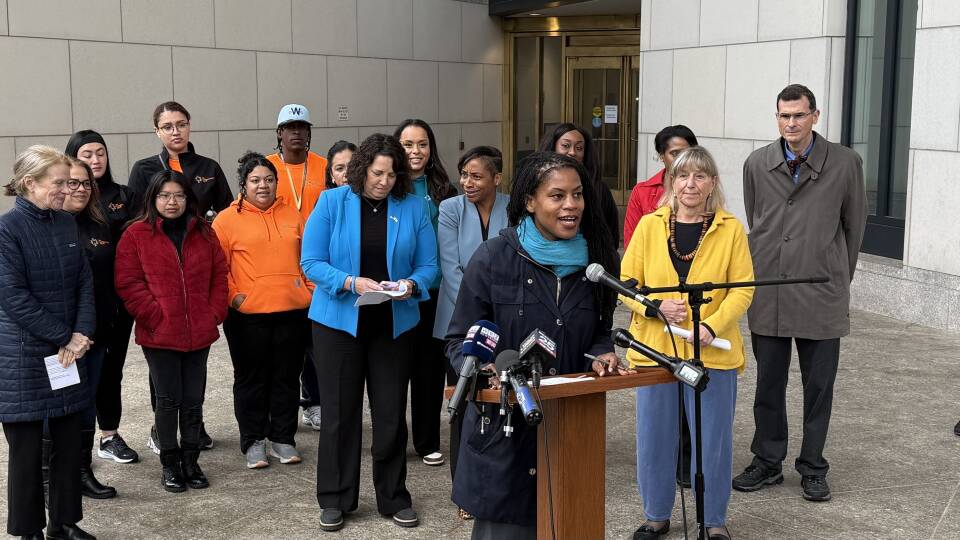Massachusetts is projected to need another 222,000 housing units by 2035 to fix its existing shortage, cut costs and make room for growth. But those new homes won’t pop up overnight — the planning, regulatory approvals and construction itself all take time.
With that sometimes long slog in mind, Gov. Maura Healey and members of her team trekked out to a Medford construction site Tuesday to announce a change aimed at fast-tracking some housing development.
New state regulations, Healey said, will make it possible for certain projects to clear a state environmental review process in 30 days that can otherwise take over a year.
“This is about cutting red tape so we can cut more ribbons on more new homes and get to more reasonably priced housing around this state,” Healey said.
Under the draft regulations, projects will be eligible for the streamlined review if they meet certain criteria, including housing development that relies on existing water and sewer infrastructure, is served by public transit, meets density and energy efficiency standards and is not at high risk of floods
“The bottom line is we can maintain our strong environmental standards and build housing and also have nature-based solutions to address rising climate mitigation, rising climate needs and mitigation,” Lt. Gov. Kim Driscoll said.
Developer The Davis Companies plans to turn the Medford site where Healey made the announcement, a former box factory at 970 Fellsway, into 289 new homes, plus open space and parking. Chief development officer Michael Cantalupa said the project will also involve street and transit improvements, sustainable building materials and modern storm water management.
Cantalupa said the Massachusetts Environmental Policy Act office review for 970 Fellsway took seven months “and that was a relatively short and efficient review, for a MEPA review.” A shorter process, he said, will help reduce development costs.
The Healey administration will be accepting feedback on the new regulations through Oct. 31, with virtual public hearings planned for Oct. 14 and 15.
The announcement from the governor’s office included statements of support from officials with the Trustees of the Reservations and the Conservation Law Foundation, as well as housing advocates and developers.
“CLF looks forward to working with the administration as these draft regulations are refined to ensure they effectively advance climate resilience and clean energy affordability, expand access to affordable, safe housing, and continue to protect communities and the environment,” said Kate Sinding Daly, who works on law and policy at the Conservation Law Foundation.








